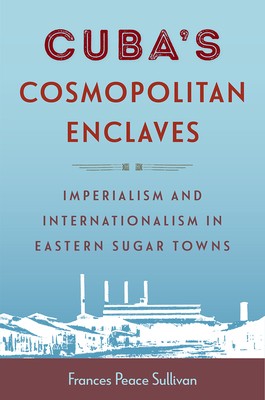
- We will send in 10–14 business days.
- Author: Frances Peace Sullivan
- Publisher: University of Florida Press
- ISBN-10: 1683405110
- ISBN-13: 9781683405115
- Format: 15.6 x 23.4 x 2.1 cm, kieti viršeliai
- Language: English
- SAVE -10% with code: EXTRA
Reviews
Description
How northeastern Cuba became a hub of internationalsolidarity and transnational movements in the 1920s and 1930s This book explores
how a region in Cuba that was widely known as a site of labor subjugation
became a hub of international solidarity in the 1920s and 1930s. In the early twentieth
century, United States agricultural companies like the United Fruit Company
established sugar export operations in Cuba's Oriente Province, creating a zone
of economic imperialism. These early multinational corporations recruited Afro-Caribbean
laborers from surrounding islands, aiming to create closed, self-sufficient plantation
complexes. However, as Frances
Peace Sullivan shows in Cuba's Cosmopolitan Enclaves, the influx of
foreign capital led to the development of diverse, vibrant communities in these
company towns. Drawing on archival sources in Cuba, the US, Russia, and the UK,
Sullivan demonstrates how immigrant workers joined local Cubans in movements
for radical transnational solidarity. In the interwar years, northeastern Cuba
became a center of Garveyite Pan-Africanism, global communism, and anti-fascist
support for Republican Spain. In 1933, the region attracted the world's
attention when workers seized sugar mills in a revolutionary strike. Placing
northeastern Cuba at the heart of the history of interwar internationalism, Sullivan
shows how Oriente emerged as a focal point for visions of resistance. Cuba's
Cosmopolitan Enclaves reveals how workers seized pathways created by
imperialist companies and used them to advance their own goals. In this focused
study, Sullivan offers a detailed portrait of how ordinary people became
leaders in transnational radicalism. A volume in the
series Caribbean Crossroads: Race, Identity, and Freedom Struggles, edited by
Lillian Guerra, Devyn Spence Benson, April Mayes, and Solsiree del Moral
EXTRA 10 % discount with code: EXTRA
The promotion ends in 22d.07:27:17
The discount code is valid when purchasing from 10 €. Discounts do not stack.
- Author: Frances Peace Sullivan
- Publisher: University of Florida Press
- ISBN-10: 1683405110
- ISBN-13: 9781683405115
- Format: 15.6 x 23.4 x 2.1 cm, kieti viršeliai
- Language: English English
solidarity and transnational movements in the 1920s and 1930s This book explores
how a region in Cuba that was widely known as a site of labor subjugation
became a hub of international solidarity in the 1920s and 1930s. In the early twentieth
century, United States agricultural companies like the United Fruit Company
established sugar export operations in Cuba's Oriente Province, creating a zone
of economic imperialism. These early multinational corporations recruited Afro-Caribbean
laborers from surrounding islands, aiming to create closed, self-sufficient plantation
complexes. However, as Frances
Peace Sullivan shows in Cuba's Cosmopolitan Enclaves, the influx of
foreign capital led to the development of diverse, vibrant communities in these
company towns. Drawing on archival sources in Cuba, the US, Russia, and the UK,
Sullivan demonstrates how immigrant workers joined local Cubans in movements
for radical transnational solidarity. In the interwar years, northeastern Cuba
became a center of Garveyite Pan-Africanism, global communism, and anti-fascist
support for Republican Spain. In 1933, the region attracted the world's
attention when workers seized sugar mills in a revolutionary strike. Placing
northeastern Cuba at the heart of the history of interwar internationalism, Sullivan
shows how Oriente emerged as a focal point for visions of resistance. Cuba's
Cosmopolitan Enclaves reveals how workers seized pathways created by
imperialist companies and used them to advance their own goals. In this focused
study, Sullivan offers a detailed portrait of how ordinary people became
leaders in transnational radicalism. A volume in the
series Caribbean Crossroads: Race, Identity, and Freedom Struggles, edited by
Lillian Guerra, Devyn Spence Benson, April Mayes, and Solsiree del Moral


Reviews